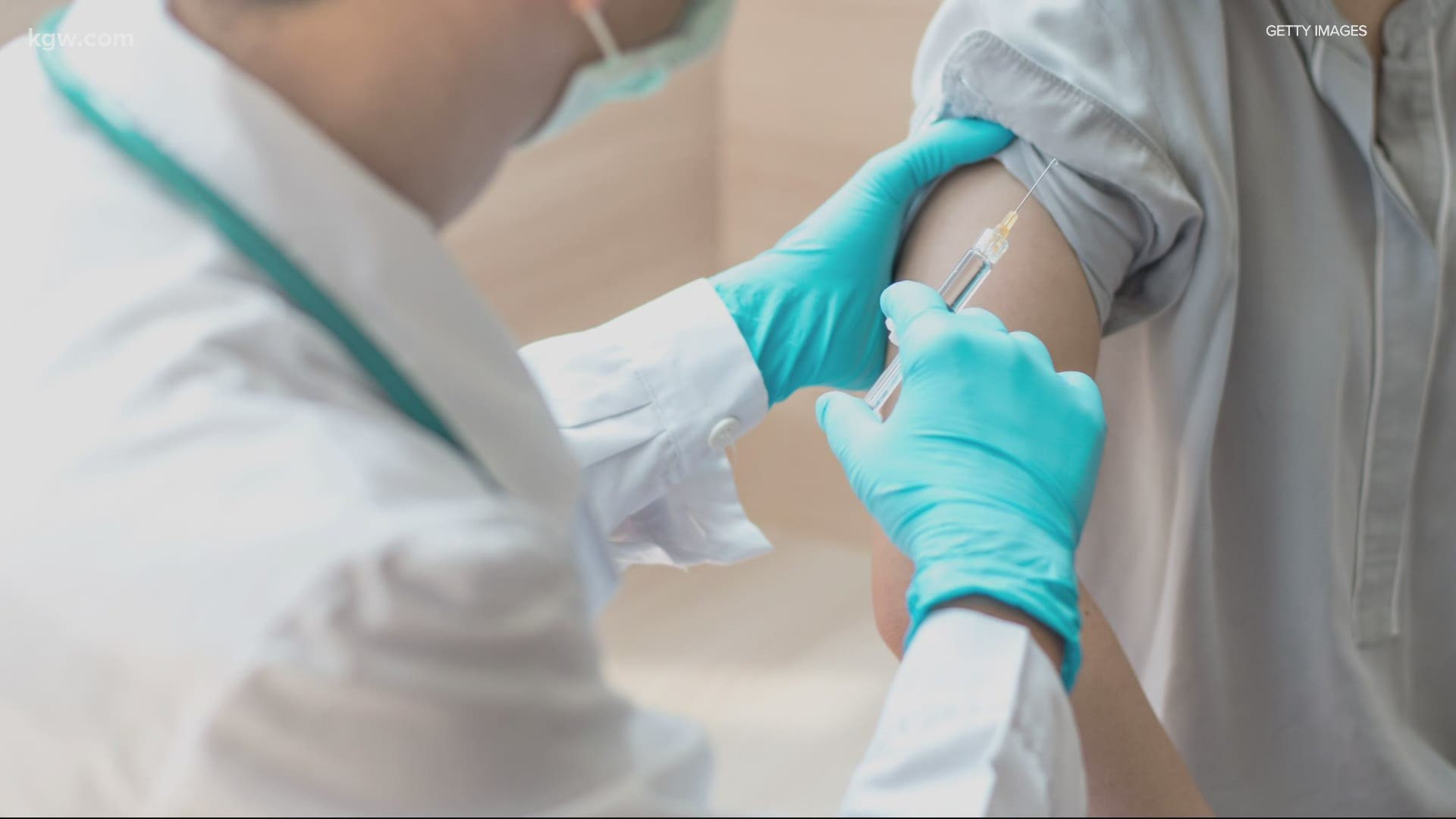PORTLAND, Oregon — Ali Sullivan was one of many teachers who contacted KGW after the state's latest announcement on the vaccine rollout in Oregon.
Sullivan is a first and second-grade teacher at a private school after being a public school teacher for four years.
“Did anyone else hear this headline and feel like, wow, there's this immediate pressure, that like, if kids are going back to school, like everything will just be fixed?” asked Sullivan.
Friday, Governor Kate Brown said teachers will be next in line to get the vaccine -- going before seniors after news that the federal government would not send enough vaccine immediately to cover both groups at the same time.
When Brown was asked why teachers were going first, against CDC recommendations that people 65 and older should be vaccinated after healthcare workers, she said students must get back to school for their mental health.
"I talked with the CEO and President of Salem Health on my vaccination tour this week," said Gov. Brown. "She is hearing of many 11 and 12-year-olds attempting suicide."
Sullivan said while she was grateful educators were getting the vaccine, she does not have the proper training to help students considering suicide.
"Do all of our teachers need to have training to be able to handle children coming to school that are suicidal or depressed because I don't have that," said Sullivan. "I don't have any of that support to make sure a child who is dealing with those kinds of very important and serious and valid things. That's not going to be fixed at school. Not by me."
The Oregon Education Association, the state's largest teacher's union, said teachers needed this training and students needed this help before the pandemic. OEA President John Larson said in a statement:
“As schools across Oregon begin the process of physically reopening and students return to the classroom it is critical that we ensure our schools have the wraparound services that students will need to thrive. The disrupted learning epidemic in our schools was already contributing to the need for stronger investment in social and emotional supports in our schools, but the stress and trauma wrought by COVID-19 has only exacerbated the need for comprehensive mental health support teams that include school nurses, psychologists, counselors, and other professionals. Our schools must be prepared to meet the needs of our students by investing in these essential programs”
Recent data from the Oregon Health Authority shows a slightly lower rate of teenage suicide-related emergency room visits this year compared to last but calls for help are up.
Data from Lines for Life, a suicide prevention group in Oregon, show a 38% increase to their Youthline from March to the end of 2020.
Lines for Life attributes the uptick to several factors including COVID, a Tik Tok influencer posting the Youthline phone number online, and the natural rate of growth happening over the last five years.
While students are struggling with serious issues, teachers like Sulivan question if they are prepared to help these kids in the right way once vaccinated and back in class.
“I guess that's why the emphasis that Governor Brown has chosen to put on children's mental health, felt like this is a super simplification because many of us are cutting the line for seniors, which feels awful. And then when we get back, it's like, you've got the vaccine, so we should, this should be fixed now. And it was really messy to get there," said Sullivan.
KGW reached out to Governor Brown's office for a comment regarding concerns about the lack of training for teachers to deal with these issues. Spokesman Charles Boyle released a statement via email:
"It's absolutely critical that we return Oregon students to in-person instruction as quickly as possible. When they are with students in the classrooms, teachers, school-based health professionals, and other educators are often the first to notice and identify when a student needs help and to connect that student with behavioral health services. Many schools also have counselors, school psychologists, and other specialists on-site who can engage with students and their families when school buildings are open."
The number for the national suicide prevention hotline: 1-800-273-8255. It's available 24 hours a day.

